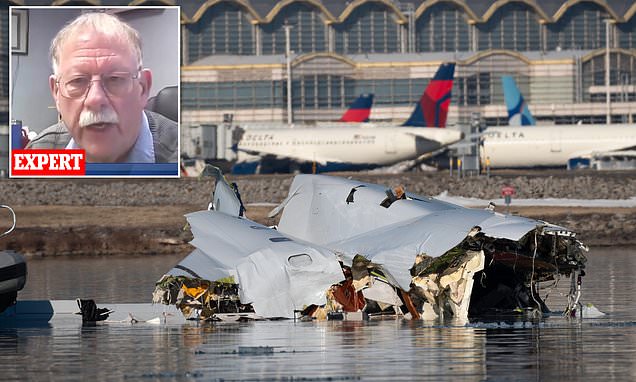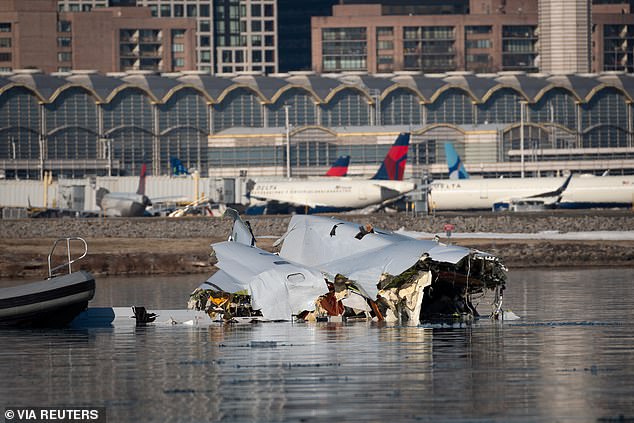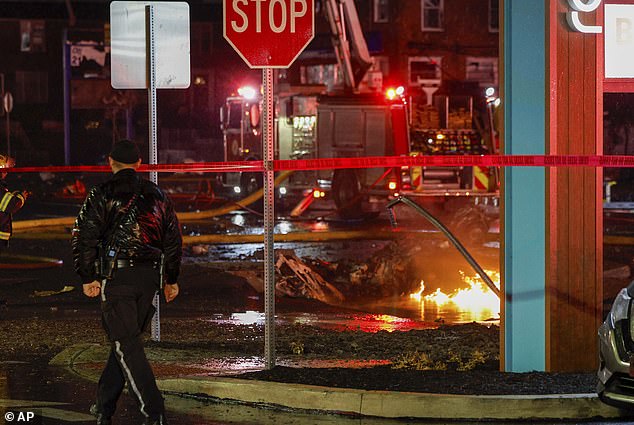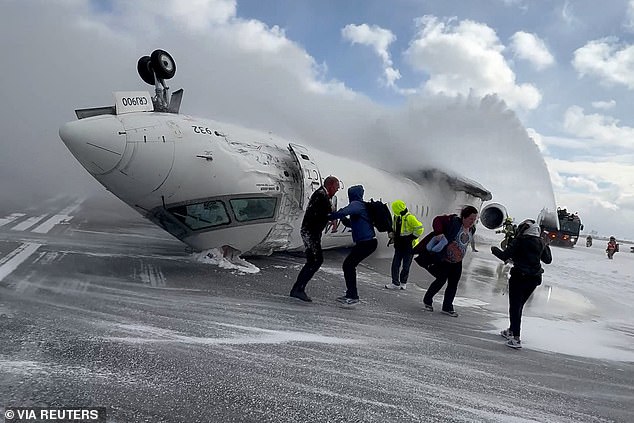CELEBRITY
Truth behind how dangerous it really is to fly now after spate of deadly plane crashes

Experts have weighed in on the safety of airplane travel as back-to-back crashes have triggered horror and uncertainty.
Since the start of 2025, a passenger jet and military chopper collided over Washington DC, an air ambulance exploded in Philadelphia and a Delta flight flipped during a Toronto landing.
These incidents – among others – have made many fliers fearful about boarding their next flight – but aviation specialists say the risk is not as great as it seems.
‘Flying is so safe that your most dangerous part of the flight is actually driving to the airport and driving home,’ Jeff Baum, a pilot of over 50 years and the president of Wisconsin Aviation, told WMTV.
He recognized that the series of ‘high-profile accidents’ was a ‘very bad start for aviation’ this year.
The number of American adults who feel ‘somewhat safe’ or ‘very safe’ on an airplane has dipped since last year, according to data collected by The Associated Press-NORC Center.
Last year, about 71 percent of survey participants fell in one of the two above categories. This year, only 64 percent voted feeling any kind of safety on flights.
In the wake of what many see as chaos, about two in every 10 US adults feel that air transportation is ‘very’ or ‘somewhat’ unsafe – a 12 percent increase from last year.
But he wants to remind skeptics that the Washington DC accident that killed 67 people was the first fatal commercial flight crash in the US since 2009.
CNN analysist Harry Enten agreed with Baum’s sentiment and concluded there was a ‘record low’ number of airplane accidents in January after reviewing data from the National Transportation Safety Board.
Enten wrote in a CNN Business article: ‘It appears that last month there was a record low number of airplane accidents nationwide, when combining private and commercial airline flights.
‘January 2025’s safety record isn’t a statistical anomaly, either. I’ve previously noted how commercial air travel in the United States has been safer than ever before.
‘And, though it’s almost become a mantra among the airline industry at this point, for each mile traveled commercial airliners are far safer than cars.’
There were 62 reported plane accidents in the US last month and most of them were private flights, he said. Ten of them were, however, fatal.
This number is down from January 2024 when there were 80 reported incidents.
Over the last 15 years, there have been the least amount of deaths on commercial flights than any prior 15-year time span, Enten explained.
‘Flying is still the safest mode of transportation by far and it still will be,’ Collegiate Program Manager for Wisconsin Aviation Chris Johnson told WMTV.
He asserted that if the preliminary data remains accurate, this January will be the safest one in American flight history – beating January 2012 when there were 70 accidents.
‘Still, when you put it all together, airplane travel is among the safest ways to get around. The numbers, no matter how you crack them, show it has only become safer in recent years,’ he summarized.
Even though experts have revealed otherwise, nearly two-thirds of American adults think walking or driving are the safest modes of transportation, Fortune reported.
And according to the NORC survey, people are more trusting of pilots’ capability to maintain air safety than federal agencies being able to do so.
About 84 percent of the 1,112 US adults surveyed said they had ‘a great deal’ or ‘a moderate amount’ of confidence in pilots, while only 55 percent said the same about the government.
Enten said that ‘what stands out about January and the Toronto crash is that they involved commercial airliners’.
‘The vast majority of crashes are private small planes, so they don’t get much press. Riding in a small private plane is significantly less safe.’
Although statistics point to a positive trend in US air travel, it is understandable to feel hesitant about about boarding an aircraft, according to Wisconsin-based Licensed Clinical Social Worker Sydney Zettler.
Zettler explained to WMTV: ‘There’s two kinds of common thoughts that can drive anxiety, catastrophizing and probability over estimation.
‘This example, is there’s maybe more travel anxiety given recent plane crashes in the United States.’



















